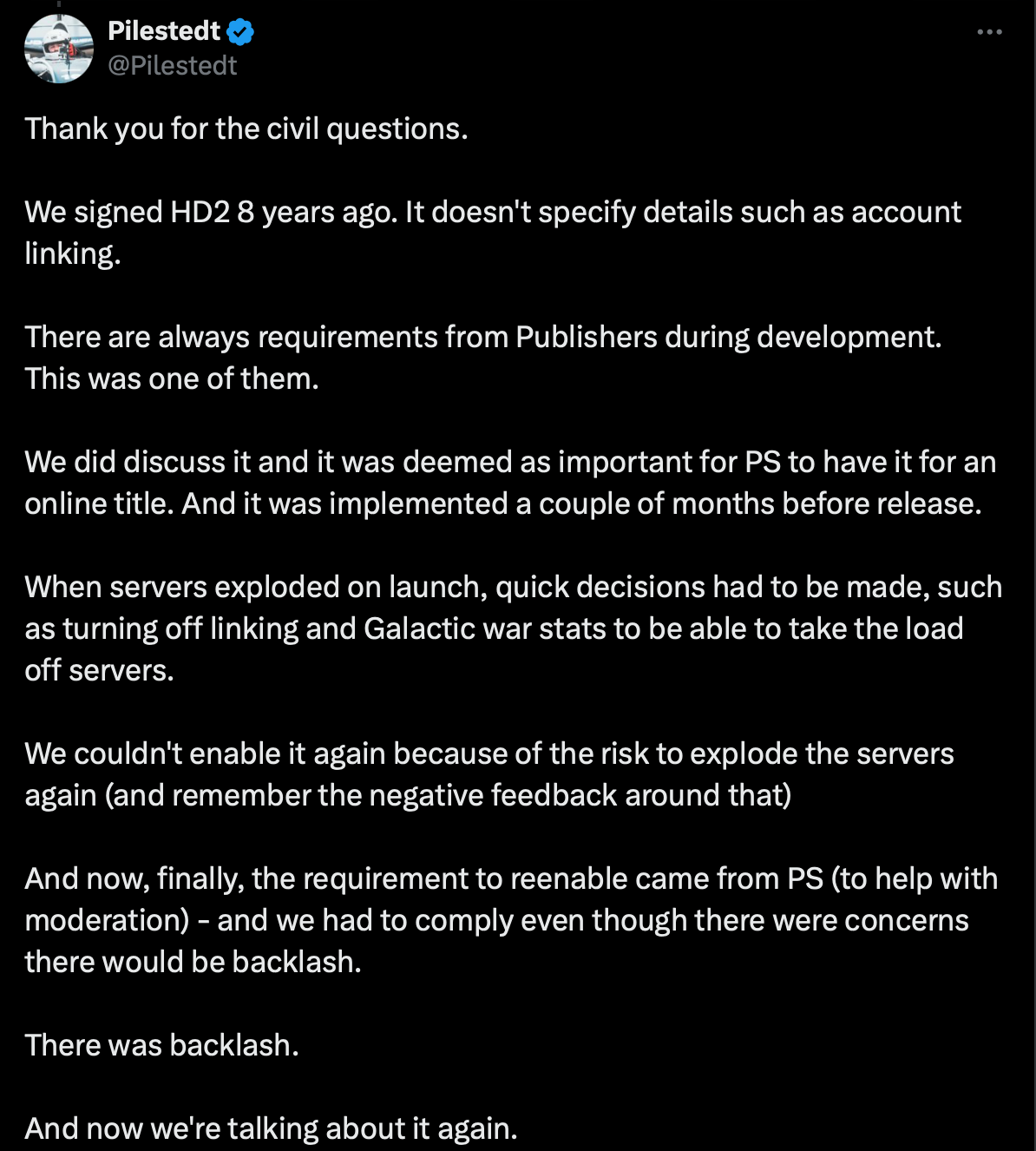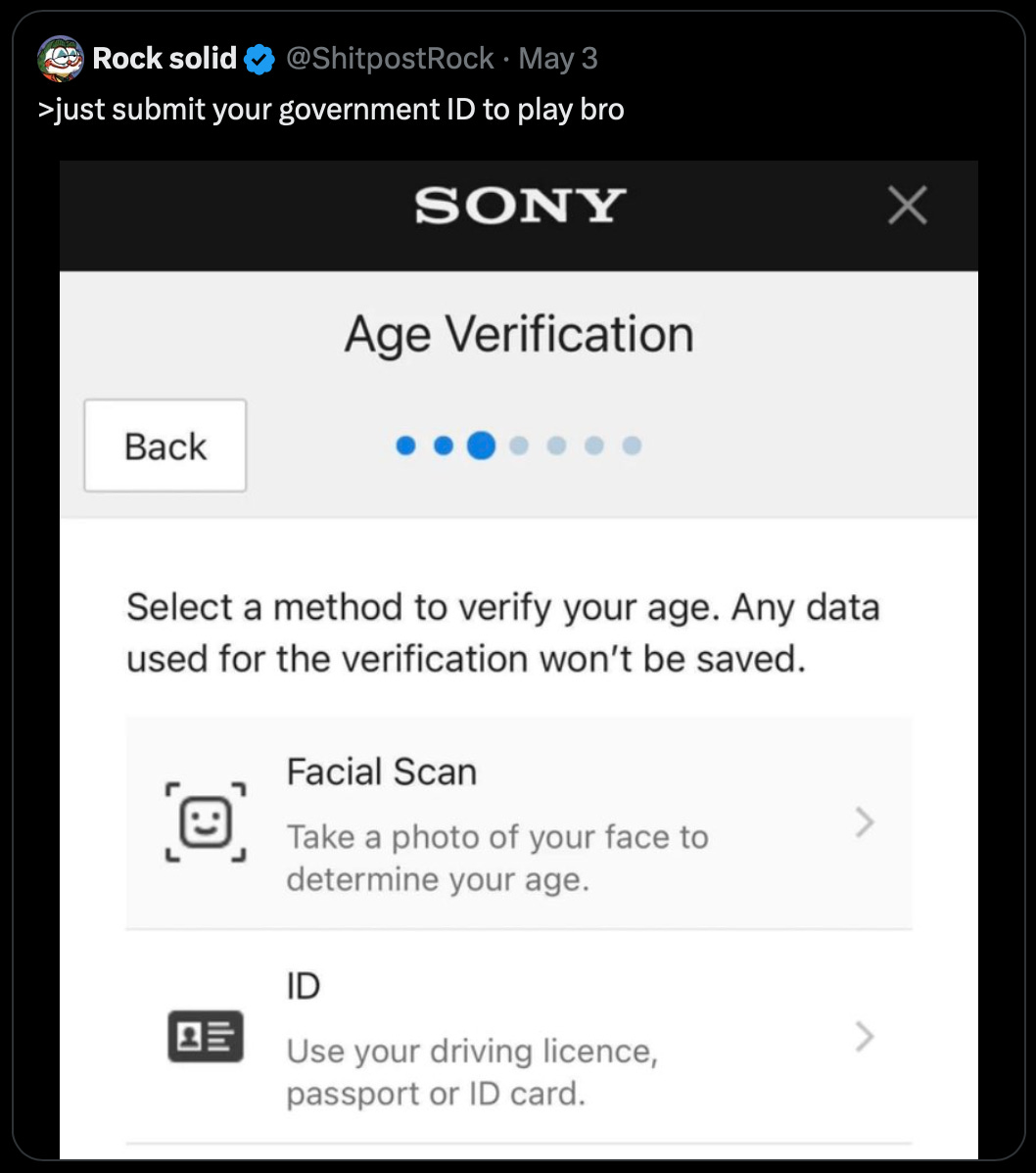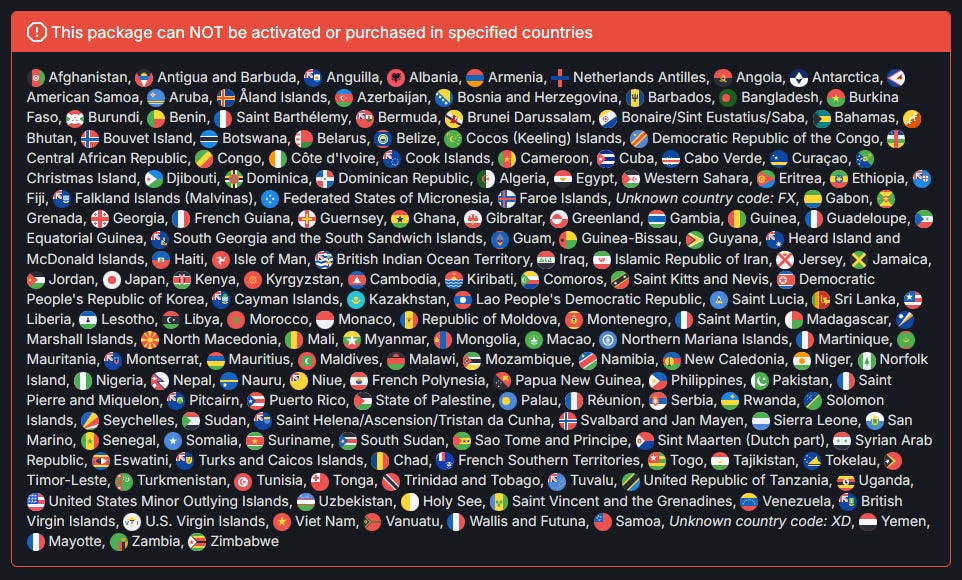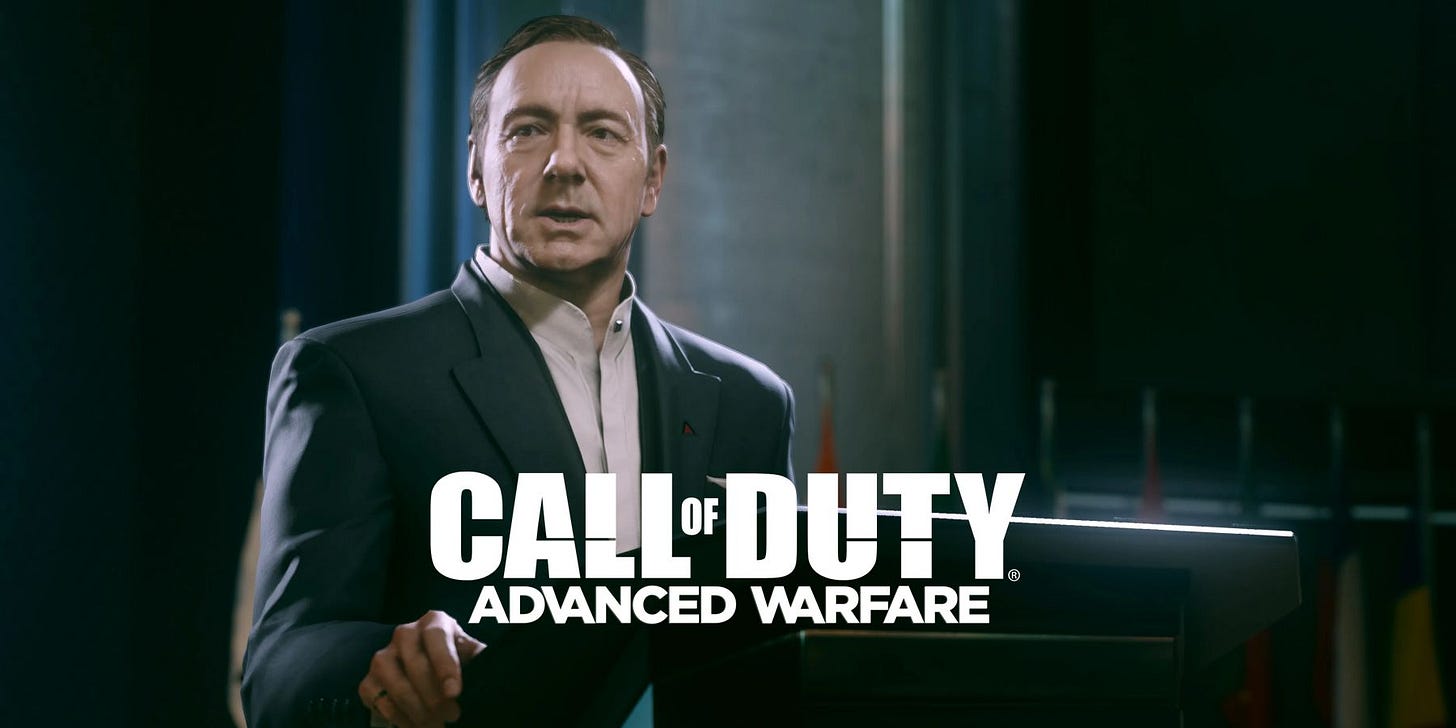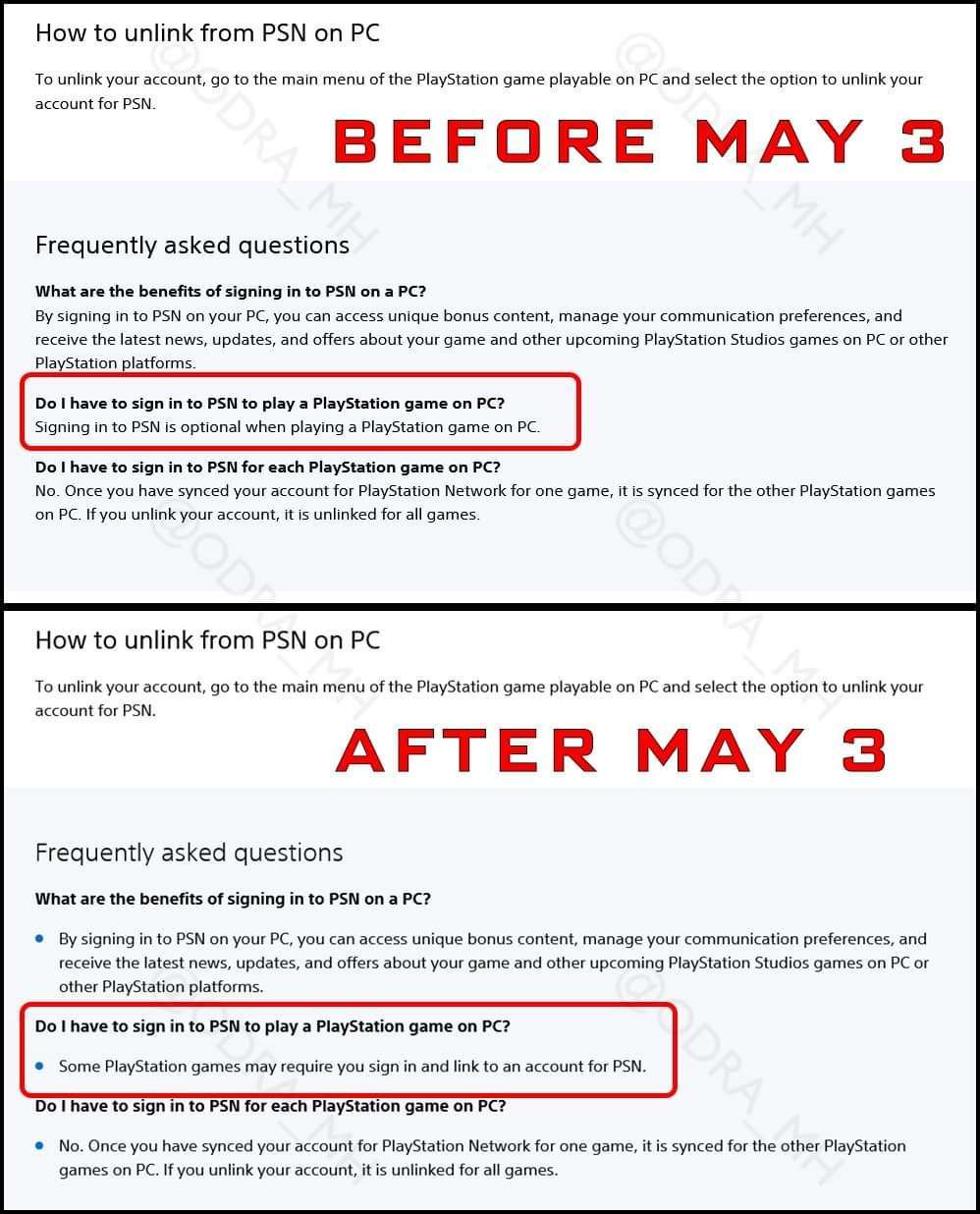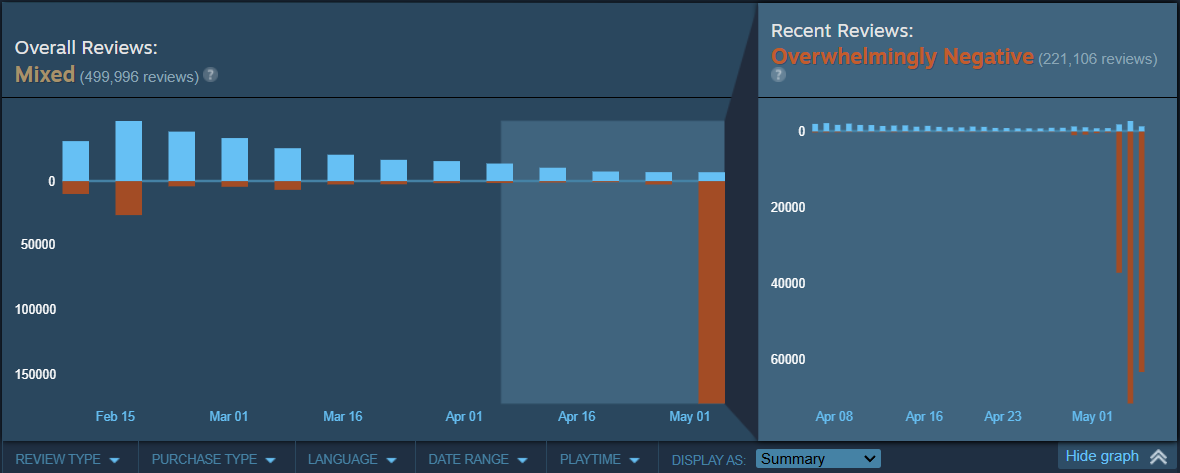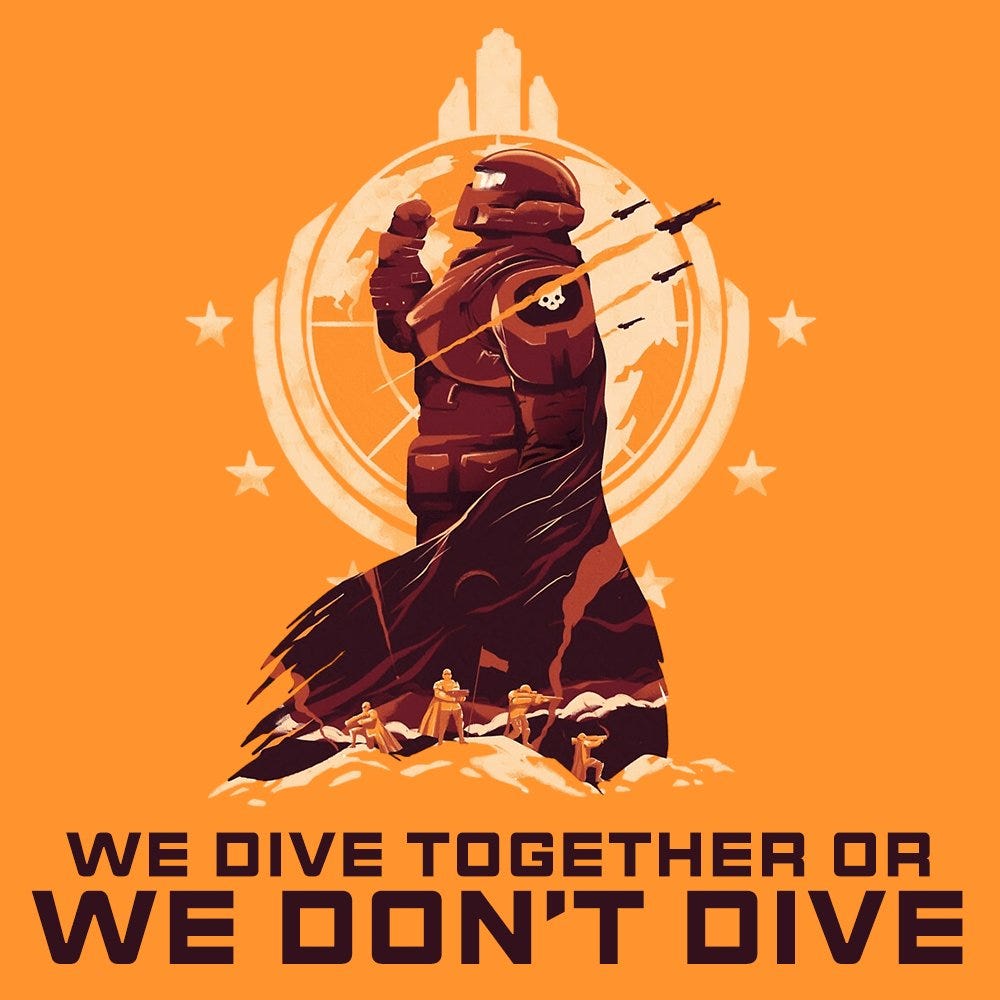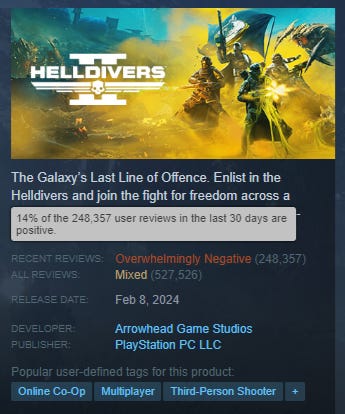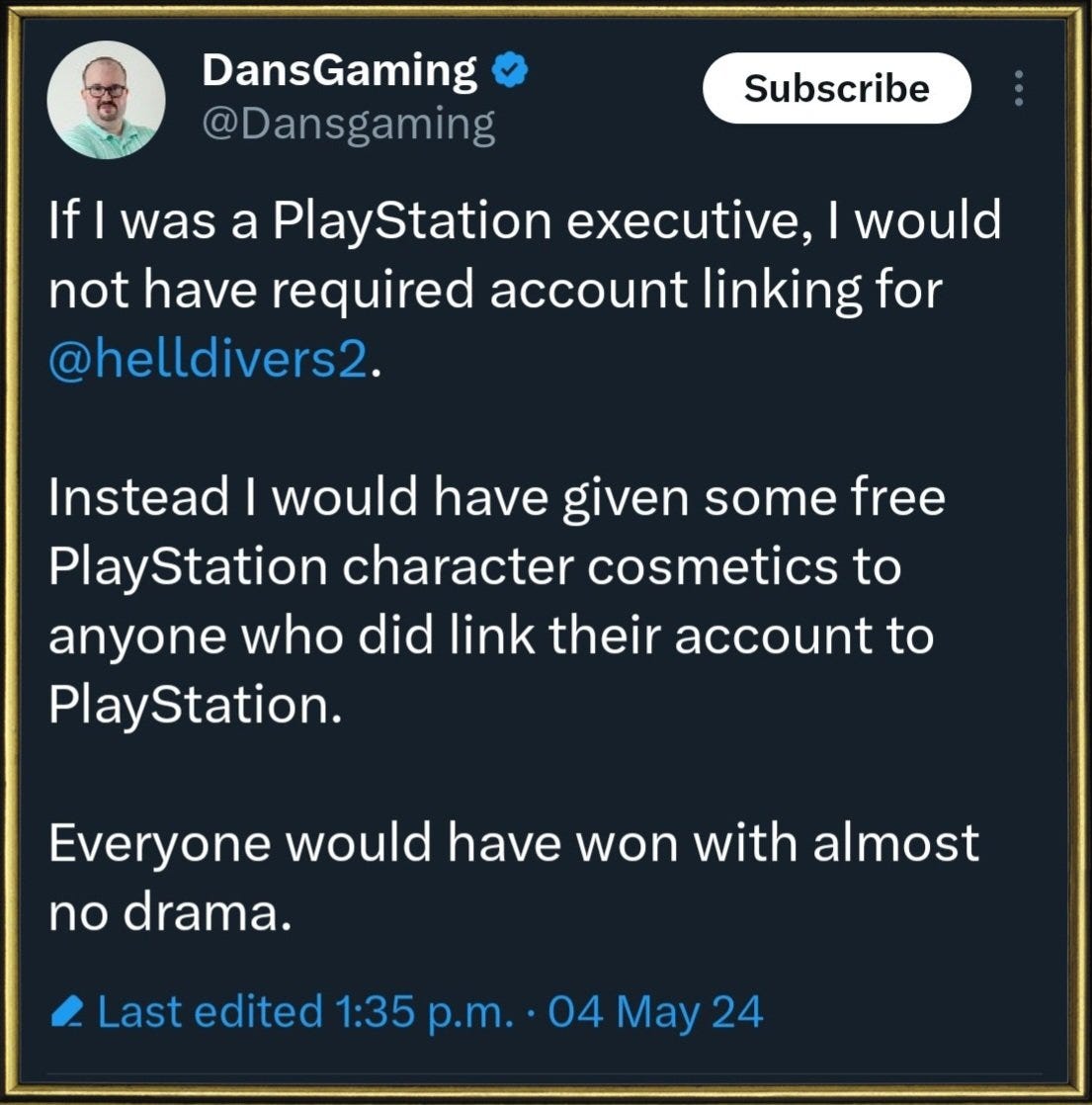Sony's Helldivers 2 dives into Customer Experience Hell
What can we learn about (bad) Customer Experience Strategy and Management from the latest Sony's fiasco?
Corporate penny-pinchers often find a way to sour the sacred relationship between brands and their valued customers.
But it isn’t often when the customer community manages to fight back the corporate greedy impositions and win.
We have witnessed (or for some of you, even participated) in such event during the last few days.
Sony announced the enforcement of Playstation Network (PSN) accounts for PC gamers1 and it led to the absolute crash in the review ratings and massive refunds.
For those of you who aren’t familiar with how this messy gaming platforms environment works, let’s do a quick recap.
How the Gaming Platforms work
The four main gaming platforms today are PC, Microsoft’s Xbox, Sony’s Playstation and Nintendo.
And their corresponding leading distribution and account services providers are Valve’s Steam for PC, Microsoft’s Xbox Live for Xbox, and Sony’s Playstation Network (PSN) for Playstation.
Gamers are used to live inside their respective walled gardens, according to the platform where they own their games.
These services provide:
account management
leaderboards
software distribution (where you download the games and their patches)
online communities (with different levels of moderation between platforms)
online security (anti-cheat mechanisms, hacker reporting protocols, etc.)
online stores (where you purchase the games, downloadable content, and more)
and most importantly, hosting the online matchmaking servers where players meet and play
Gamers create a unique account in the service of their preference, depending on which platform they own (PC, Playstation, etc).
If a gamer owns several platforms (a PC and a Playstation, for example) it is common for him to be registered in more than one service.
But what happens when Sony decides to start selling their Playstation games through the PC distributor (Valve’s Steam in this case)?
The gamer already has a Steam account, and is purchasing the software through Steam, so he doesn’t need a PSN account.
Steam already provides the account management, software distribution, communities, security, online store, etc.
But the online matchmaking and game servers are still run by Sony and the game developer, Arrowhead.
What happened then?
Apparently, Sony didn’t like the idea of relinquishing the direct commercial relationship with its customers to a third party (Valve’s Steam on PC).
So, even when it wasn’t technically necessary for the game to run, they enforced onto the developer the requirement of linking the gamer’s Steam account to a valid Sony’s PSN account.
Of course, Sony argued it was because they want to be able to monitor the quality of the online interactions, and provide extra security measures.
But Sony has a really bad track record on security matters, having been breached a few times in the past, losing their customers’ personal and financial data.
Most probably, it just was some clever corporate who wanted to up the numbers of PSN subscribers (the game had already gained 8 million users in under a month) to brag to their shareholders.
All in all, it was a very messy process, even previously to the game being launched.
Arrowhead, the game developer, stated that they were told by Sony about the PSN account linking 6 months before the game finished development.
And given that the game had been in development for 8 years, it seems to me like a major oversight.
The storm is brewing
So, the game was launched on the Playstation 5 (PS5) platform and PC.
It naturally used PSN as its account service for PS5, and Steam for the PC release.
But it also brought the (poorly communicated) requirement of linking the Steam account to a PSN one if you were a PC gamer.
If you were a PC gamer, and you didn’t own a Playstation, you probably didn’t have a PSN account.
So you would have to create one from scratch just to be able to play.
This caused several unforeseen problems:
Helldivers, the first game in the franchise, wasn’t very popular. At least, not at the level its sequel has been.
That means the developer and Sony didn’t anticipate such a huge inflow of concurrent gamers hitting the servers.
So, during the first week after the launch, they had it very hard with the server load, and chose to waive as Optional the account linking, until they could fix it.
From the PC gamers’ point of view, most of them weren’t aware that the account linking even existed, and that they would have to eventually comply with it.
But this was just the start of it.
The game was marketed by Steam worldwide.
And a worldwide success it became.
Gamers from all over the world purchased it and spent hundreds of hours playing cooperatively with others.
Then, suddenly, Sony announced they were going to make the PSN account linking mandatory for everyone.
Not a storm, but a hurricane
Of course, this caused outrage in the PC gamer community, as they were being forced into creating an account they didn’t really need.
And for a company that commands a very low level of confidence in their security capabilities, after a few fiascos in that regard2.
The PSN account creation process requires biometric identification and registering a valid government ID.
All of that for playing a game.
Especially if you know that it isn’t technically necessary at all.
But, again, this was only the beginning.
Sony realized that Steam had sold the game worldwide, and Sony’s policies didn’t allow PSN accounts to be created worldwide.
Actually, the restricted countries list is quite large.
So, now you not only had a rightfully outraged community, but you had people that lawfully owned the game, and were going to be unable to continue using it.
To add insult to the injury, the game was delisted from all the restricted countries on the Steam platform, effectively disabling the it for those users.
And Steam’s policy of only refunding a game purchased online if you had played it under 2 hours in total wasn’t cutting it: some people had already hundreds of hours accrued.
All of this for a game?
You might be asking yourself right now: why all this ruckus for a game?!?!
Well, games are no longer Pac-Man or Space Invaders.
Nor are they created by small teams or even a single person.
Most AAA games today have budgets that rival or surpass Hollywood blockbusters, or even entire franchises.
No more 8-bit beeps in the PC speaker for those games.
Now we have game soundtracks and scores performed and directed by Hans Zimmer, Inon Zur, etc.
Voices and faces motion-captured from renowned Hollywood actors and actresses.
And, if successful, those IPs (Intellectual Properties) can be later turned into merchandising, movies and series.
Like the latest hit from Amazon Prime: Fallout, based on a well beloved PC game franchise.
So, when a game gets 8 million players in a month, you know you are into something.
And you are supposed to take care of that community. It’s worth its weight in very literal gold.
Sony’s misguided handling
Instead trying to find a solution, Sony doubled down on the enforcement, and retired (through Steam) the access to the gamers on restricted countries.
But not happy enough, they modified their website to try to erase any trace of proof that the game was launched with the PSN account linking is Optional notice.
The sum of all of these unfortunate decisions and events caused an upheaval in the ratings and usage of the game.
Refunds were being issued all over the world, even in countries not affected by the PSN restrictions.
People stopped playing.
And the ratings on the Steam platform went from the sky high levels they had deservedly earned in 2 months, to the deepest recesses of Hell, in just a couple of days.
In this ugly situation, an unintended casualty was the game developer company, Arrowhead.
Arrowhead had garnered a lot of goodwill and esteem from the community, prior to this fiasco.
At the onset, they quickly sided with the community, recommending them to downvote the game so they could exert pressure on the publisher, Sony.
So, after a “hellish” weekend for Sony, they finally caved in, and announced they wouldn’t enforce the PSN account linking on PC for Helldivers 2 anymore.
The Helldivers had won.
What can we learn from this fiasco
Let’s do a quick analysis using some of our Customer Experience Strategy tenets, to see what went wrong and how it could have been done differently.
30% of service contact disputes could have been avoided by better upfront communication
This was probably the key factor here.
Sony knew.
Arrowhead knew.
Steam (probably) knew.
The only ones that weren’t informed of the lingering requirement to link the PSN accounts to Steam were the customers.
At least not with the level of clarity required.
Arrowhead develops the game.
Sony, as the publisher, is responsible of managing the distribution channels.
Why did they let Steam sell it worldwide if they had a large country restriction list for PSN accounts that would have to be created and linked later?
This one has an easy fix: better communication to manage the expectations.
Over 70% of returned products didn’t have anything wrong. Once the manuals were enhanced, the number decreased dramatically
The game didn’t have anything wrong in it.
If the documentation, for both marketing and sales, had been accurate, nobody in a restricted zone would have been able to purchase the game.
And those not comfortable with the idea of creating an additional PSN account, wouldn’t have, either.
The game would still have had millions of users, without any angry outcry.
Four times more impact of negative than positive Word of Mouth
This one is pretty obvious.
Just look at the timeline of the positive vs negative review charts.
What took months to accomplish was demolished in a couple of days.
5% of users post reviews, but 30% of users read them
These negative posts will remain in the platform.
It is very unlikely every disgruntled gamer will make the effort of going in and changing their ferocious rant.
So, future gamers might still be discouraged from purchasing the game.
And a new game, Ghosts of Tsushima is coming also to the PC.
Its developer is already trying to appease the crowd, which is unsettled by the idea of having to create a PSN account and link it.
They have clearly stated that the single player experience can be used without PSN, but some optional features might require it.
The community already distrusts Sony. Even more than before.
How could have Sony managed this in a less toxic way?
There are many situations where the platform needs to ask from the gamer actions that can be unpleasant or become a chore.
For example, the use of 2-Factor Authentication to avoid the accounts from being easily stolen.
How do smart companies handle this?
They make it optional, but provide strong perks to those who do it.
Those “perks” usually entail zero real cost for the platform and the game, like cosmetic items, quality of life items, etc.
All of them virtual. Zero cost.
But high value for the gamer.
Sony could have offered something very desirable, and with zero cost for them, in exchange of the PSN account linking.
And nothing of this would have happened.
Conclusion
“Only a fool learns from his own mistakes. The wise man learns from the mistakes of others.” - Otto von Bismarck
We have to be wise, and learn from Sony’s mistakes.
Most importantly, we must realize that our Customer Experience strategies and principles are there to avoid this kind of situations from ever happening.
At Sony’s, its Customer Experience principles failed.
They should have served as guardrails, preventing some executive from taking these misguided decisions.
Whenever you don’t have a clear rule or directive, it is the principles who must come forward to save the day.
This didn’t happen at Sony.
And now they have a diminished customer goodwill to show.
Do you already have clear Customer Experience principles in your organization?
Is everyone aware of them?
If not, you should start right now.
Thank you for reading my publication, and if you consider it helpful or inspiring, please share it with your friends and coworkers. I write weekly about Technology, Business and Customer Experience, which brings me lately to write a lot also about Artificial Intelligence, because it is permeating everything. Don’t hesitate in subscribing for free to this publication, so you can keep informed on this topic and all the related things I publish here.
As usual, any comments and suggestions you may have, please leave them in the comments area. Let’s start a nice discussion!
When you are ready, here is how I can help:
“Ready yourself for the Future” - Check my FREE instructional video (if you haven’t already)
If you think Artificial Intelligence, Cryptocurrencies, Robotics, etc. will cause businesses go belly up in the next few years… you are right.
Read my FREE guide “7 New Technologies that can wreck your Business like Netflix wrecked Blockbuster” and learn which technologies you must be prepared to adopt, or risk joining Blockbuster, Kodak and the horse carriage into the Ancient History books.
References
‘Helldivers 2’ PC Players Mad About PSN Account Linking, Arrowhead Responds
A timeline of Sony data breaches
https://steamcommunity.com/app/553850/discussions/0/4357872384980037545/




